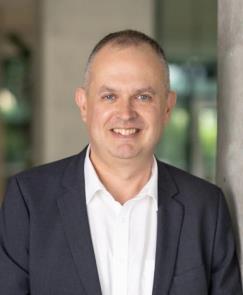

May 2024

Abstract:
The development of synthetic anion transporters is the focus of several groups worldwide due to the potential application of these compounds in the treatment of diseases caused by faulty anion transport (e.g., cystic fibrosis) and in disrupting anion concentration gradients and pH gradients leading to apoptosis and disruption of autophagy.
This presentation will give an overview of work in the Gale group over the last few years and in particular focus on the development of new assays to measure membrane transport, the development of selective transporters, such as the tetraurea macrocycle shown and the development of switchable transporters.
This work was supported by the Australian Research Council (DP180100612, DP200100453, DP210100039) and the University of Sydney.
Bio:
Phil Gale is the Deputy Dean of Science at the University of Technology Sydney. Phil is a graduate of the University of Oxford (MA DPhil 1995 DSc 2014) and after two years as a Fulbright Scholar at the University of Texas at Austin (1995-1997) took up a Royal Society University Research Fellowship at the University of Oxford and then subsequently at the University of Southampton where he was Head of Chemistry (2010-2016). He moved to Sydney in 2017 where he served as Head of School (Chemistry) (2017-2022), Associate Dean (International) in the Faculty of Science from 2020 and interim Dean of Science 2022-23. Phil is a supramolecular chemist who works on the molecular recognition, sensing and transport of anionic species. In recent years, his work has focused on the transmembrane transport of anions across lipid bilayer membranes. Phil has published over 300 primary research papers, review articles, book chapters and books and is a Clarivate Analytics Highly Cited Researcher in Chemistry (2014-2019) (h-index = 89). Phil is the editor-in-chief of Coordination Chemistry Reviews and a member of the editorial or advisory boards of Chem, Chemical Science, Chem. Soc. Rev., and Trends in Chemistry.